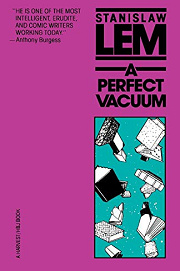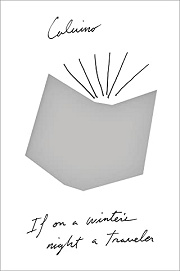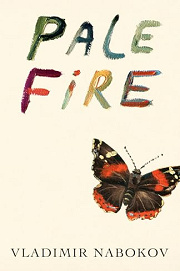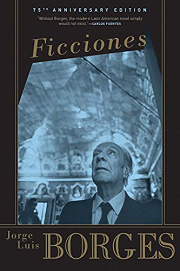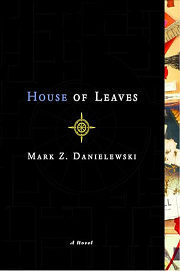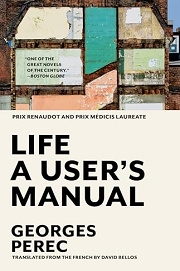Share your thoughts in a quick Shelf Talk!
A Perfect Vacuum by Stanislaw Lem
What if the greatest library of criticism reviewed books that never existed? With razor wit and restless imagination, A Perfect Vacuum offers brilliant “critiques” of imaginary works, skewering literary fashions while celebrating the boundless possibilities of ideas.
Have you read this book? Share what you liked (or didn’t), and we’ll use your answers to recommend your next favorite read!
Love A Perfect Vacuum but not sure what to read next?
These picks are popular with readers who enjoyed this book. Complete a quick Shelf Talk to get recommendations made just for you! Warning: possible spoilers for A Perfect Vacuum below.
In A Perfect Vacuum, did you enjoy ...
... the playfully self-referential structure and commentary on reading itself?
If on a winter's night a traveler by Italo Calvino
If the faux reviews in A Perfect Vacuum—from the Joycean pastiche of “Gigamesh” to the desert-island send-up in “Les Robinsonades”—delighted you with their self-aware games, you’ll relish how If on a winter’s night a traveler turns you, the Reader, into a character who keeps starting new books that keep interrupting themselves. Calvino’s nested openings and direct addresses scratch the same itch as Lem’s mock-critical frame, but with a more story-forward, puzzle-box momentum.
... the razor-edged satire delivered through an invented critical apparatus?
Pale Fire by Vladimir Nabokov
Loved how Lem’s imaginary prefaces skewer authors, critics, and grand theories—say, the way “Gigamesh” parodies scholastic exegesis? Pale Fire is a whole novel built from a poem plus footnotes by the wildly unreliable Charles Kinbote, whose commentary hijacks the text with vanity and delusion. You’ll savor the same wicked wit and scholarly parody, just funneled into a single, dazzlingly comic voice.
... the heady blend of philosophical puzzles with invented texts and authors?
Ficciones by Jorge Luis Borges
If the pseudo-bibliographies and thought experiments in A Perfect Vacuum—like the reductio-ad-absurdum logic games and taxonomies of nonexistent books—were your jam, Ficciones offers crystalline parables that play the same metafictional-philosophical game. Stories such as “The Library of Babel” and “Pierre Menard, Author of the Quixote” turn ideas about authorship, infinity, and interpretation into mind-bending narratives.
... the layered, pseudo-academic format with footnotes, commentary, and textual play?
House of Leaves by Mark Z. Danielewski
If you enjoyed how A Perfect Vacuum masquerades as criticism—complete with scholarly tones and in-jokes—House of Leaves pushes that apparatus to the brink: a documentary study of a film that may not exist, annotated by editors and a troubled narrator. The footnotes, appendices, and typographic labyrinth echo Lem’s mock-review conceit while spinning it into a haunting narrative puzzle.
... the intricate, idea-driven construction that rewards close, playful reading?
Life: A User's Manual by Georges Perec
If the intellectual delight of A Perfect Vacuum—its constraints, catalogues of imaginary works, and clever structural conceits—hooked you, Perec’s masterwork will thrill you. He maps an entire Parisian apartment block square by square, using Oulipian constraints to orchestrate stories-within-stories; it offers that same exhilarating, puzzle-loving payoff you got from Lem’s tour of fabricated books.
Unlock your personalized book recommendations! Just take a quick Shelf Talk for A Perfect Vacuum by Stanislaw Lem. It’s only a few questions and takes less than a minute.
